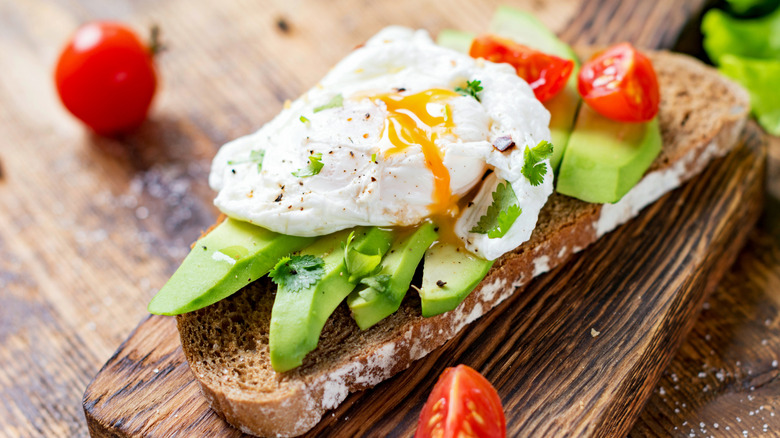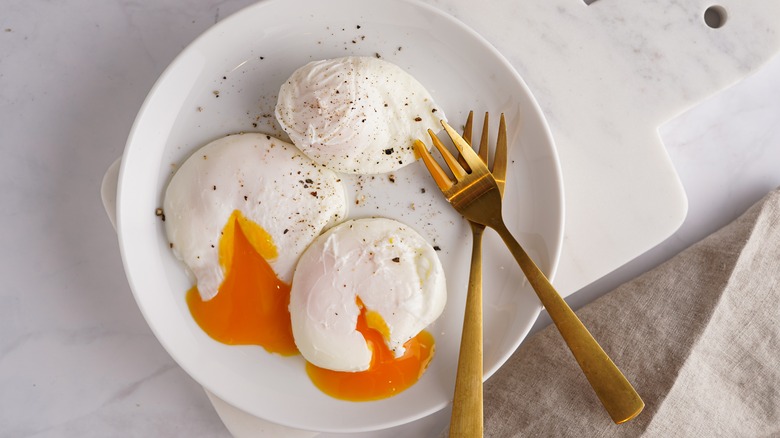What Happens When You Overcook Poached Eggs
If you've ever been at brunch and were served overcooked poached eggs on your Eggs Benedict, then you might know the disappointing feeling you get when you cut into them. The beauty of a poached egg is the tender white and ooey-gooey yolk inside, and honestly, if you wanted hard yolks you probably would order them over medium or hard-boiled.
Prepare for a steep learning curve if you're attempting to make poached eggs at home. While it's pretty tough to mess up eggs scrambled, over easy, or sunny side up, perfecting a poached egg is an art form. Overcooked poached eggs get a tough, rubbery texture which isn't conducive to the kinds of dishes you make that feature a poached egg.
Part of the fun of Eggs Benedict or poached eggs over avocado toast is that the yolks become part of the sauce. So if you're making them at home, there are a few tips to employ that will help you get a perfect poached egg every time.
Timing is everything
When it's time to poach an egg, a kitchen timer is your best friend. The first step to cooking your egg is to bring your water up to a simmer and then add a bit of white vinegar to the mix. The vinegar will help the white to coagulate around the yolk. Carefully crack your egg and place it into a small bowl or ramekin. Then get your water prepped and ready to go.
Once you are prepared to start poaching, timing is everything. Even 30 seconds or a minute over the correct cook time can overdo it, so it's good to know going in what kind of results you're hoping for before you begin. Poaching an egg for two minutes will yield a runny poached egg. Poaching for three minutes will yield a set white with a runny yolk.
Adding a fourth minute will give you a firm white with a soft yolk, but it won't run. Any longer than that and you're entering rubbery egg territory. You should also be wary of some additional mistakes people make when poaching eggs, so that the next time you give it a try, the student will become the expert.

